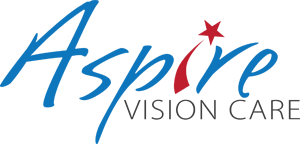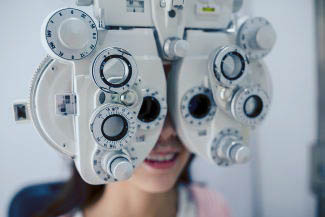Family Vision & Eye Health, in Round Rock, TX
 When it comes to having regular eye exams performed, age doesn’t matter. From toddlers to senior citizens, everyone needs routine comprehensive eye examinations. We offer expert evaluations of your vision and eye health, at Aspire Vision Care, in Round Rock, TX. Our practice is located conveniently to serve patients from the Greater Austin area, and we warmly invite your whole family to visit and benefit from our thorough eye exams!
When it comes to having regular eye exams performed, age doesn’t matter. From toddlers to senior citizens, everyone needs routine comprehensive eye examinations. We offer expert evaluations of your vision and eye health, at Aspire Vision Care, in Round Rock, TX. Our practice is located conveniently to serve patients from the Greater Austin area, and we warmly invite your whole family to visit and benefit from our thorough eye exams!
What happens during the exam?
Using progressive technology, such as digital retinal imaging, visual field testing and the Optos retinal exam, we’ll ensure that you receive highly accurate and detailed diagnoses. With top-notch skill, our friendly optometrists, Dr. Nancy Guenthner and Dr. Carissa Lumby, will inspect your eyes for any signs of abnormalities. A comprehensive eye exam is the only way to confirm or rule out detection of many ocular diseases, such as macular degeneration, glaucoma, diabetic retinopathy and cataracts.
With kids, our eye evaluations check much more than visual acuity screenings, which your child may have done at school. Pediatric eye exams can identify a vision condition that may impact or delay learning. Vision-related learning disorders are extremely common, and picking up on these problems early is the most effective way to prevent your child from falling behind in school. At our clinic in Round Rock, TX, Dr. Guenthner, a Developmental Optometrist, specializes in checking kids’ vision development through comprehensive eye exams done with a gentle touch.
Definition of a Complete Eye Exam
Each and every patient is a unique individual, with different health considerations, visual needs and expectations. We’ll customize your eye examination to match your personal situation.
Your visit to our Round Rock office may include the following:
- Taking Your Case History: We’ll ask you to share details about your general health condition and family eye history, addition to telling us about any current medications. This is also the time to inform us about any eye symptoms or visual problems that you may be experiencing.
- Preliminary testing: We’ll take a close look at your eye movement and mobility, peripheral vision, reaction of your pupils to light and color vision.
- Binocularity/Eye teaming: To see clearly and with full depth, your eyes need to team. We’ll observe how well your eyes work together to focus (accommodation) between near and far.
- Visual Acuity: We’ll assess your quality of vision by having you read an eye chart at various distances. To manually evaluate refractive error, which is one way that we diagnose astigmatism, nearsightedness or farsightedness, we’ll use a phoropter. You’ll need to look through different lenses and provide feedback on which lenses grant the clearest vision. We’ll also use a retinoscope to measure how light focuses with each of these lenses.
- Eye Health: Our optometrist will look closely at your retina and inner tissues of your eye with a high-powered lens. This enables us to diagnose or the rule out any ocular diseases.
Following our total eye exam, Dr. Guenthner or Dr. Lumby will review our findings with you and decide upon the best treatment.
Scheduling Eye Exams
The following guidelines for when to have comprehensive eye exams were issued by the American Optometric Association (AOA):
Adults
Annual eye exams are recommended for adults of all ages if you wear eyeglasses or contact lenses. Over age 40, even if no vision correction is needed, yearly examinations are advised. This is because the risk of many eye diseases, such as cataracts, glaucoma and macular degeneration, increases with age. Once you are over age 60, your optometrist may instruct to have eye exams performed even more frequently.
No matter what age you are, if you have specific risk factors, such as high blood pressure and diabetes, eye health evaluations should be done on a more regular basis. This is due to the potential damage to your eyes that can be caused by certain health conditions.
Children
Kids’ eye exams should follow this schedule:
- At 6 months old
- At 3 years old
- Before starting school.
- If no risk factors or vision problems are present, annual follow-up exams are advised during school years. If your child wears eyeglasses or has a vision condition, complete eye exams are indicated more frequently, as per your eye doctor’s instruction.
Pediatric risk factors that may point to a need for increased eye evaluations include:
- Crossed eyes, or an eye that turns out
- Past eye injury
- Premature birth
- Family history of eye disease
- Developmental delays
- Other physical diseases
Is it time for you or your kids to have an eye exam? We’re waiting to see you! Call for your appointment at Aspire Vision Center, serving Greater Austin, Texas.


